|
Dr Tom Cromarty Editor Interests: Paediatric Emergency Medicine, Medical Engagement and Leadership, Simulation, Quality Improvement, Research Twitter: @Tomcromarty |
Welsh Research and Education Network
WREN BlogHot topics in research and medical education, in Wales and beyond
Dr Celyn Kenny Editor Interests: Neonates, Neurodevelopment, Sepsis, Media and Broadcasting Twitter: @Celynkenny |
|
Guest blog post by Dr Kimberley Hallam I’m an ST2 in paediatrics and unfortunately did not have the chance to attend the RCPCH conference last year. So, this year I was very excited when I realised, not only would I be able to attend for all 3 days, but it was also in Glasgow…a city which I love and where my twin sister lives. Getting up to Glasgow itself was challenging! I travelled up after work on the Wirral on Monday night. Soon after leaving, there was an announcement that there were trespassers on the line. Unfortunately, this meant I didn’t arrive at Glasgow Central Station until 00:45! Luckily, I was staying with my sister so didn’t have the hassle of a late night check in. DAY ONE Day one of the conference was entitled the ‘Science and Research’ day. Because of my late arrival to Glasgow, I didn’t attend the 8am ‘Personal Practice Sessions’, but started at 9am with a welcome from the (now ex-) President of the RCPCH, Neena Modi. During the course of the conference, she relinquished her presidential title to Russell Viner. She gave an eloquent opening talk which was followed by a presentation by the RCPCH & Us Network. This is a group of young people who work with the RCPCH to ensure that young people’s views are listened to in all matters within the RCPCH organisation. They spoke incredibly well and are clearly a group of passionate, intelligent young people who are forward thinking, keen to bring about change and ensure their voices are heard. Another highlight from the morning included a talk by Prof. David Archard regarding children and parental rights. He took examples from recent high profile cases and presented ethical considerations regarding parental rights. He focussed on a public slogan taken from the Charlie Gard Case: ‘My Child, My Choice.’ After a fascinating discussion, he concluded that ‘disagreements [between medical staff and parents] will continue and [will] probably proliferate. Parents’ feelings and views count but they are not decisive.’ He closed the session with the remark that ‘we live in a time of post-truth and populism.’ Next came an interesting presentation from Dr Cherry Alviani and was entitled ‘Sleep for your own health: A Pan-UK Survey on Paediatricians Experience of Sleep Around Shift Work.’ She talked about a survey she completed which showed a lot of trainees do not have training on how to manage sleep around night shifts and that many hospitals do not provide somewhere for trainees to sleep on night shift and/or do not support them doing so. Given lack of sleep affects judgement and clinical performance, these are important issues to address. As an aside, the BMJ have recently published a brilliant article which gives general advice on how to survive night shifts and which I have personally found quite useful: http://www.bmj.com/content/360/bmj.j5637.full After the plenary session, I attended a workshop entitled ‘Press, Politics and Paediatricians; Campaigning for Child Health Across the UK.’ This was an interactive workshop and even had some role play where members of the audience acted as news reporters and grilled (a pretend) Jeremy Corbyn and Jeremy Hunt. Suffice to say, this became a little heated! Overall, the session introduced the idea that it is our duty as paediatricians to be advocates for child health. This may include being politically active (e.g lobbying government) or may involve speaking out on behalf of paediatricians/children in the press. The RCPCH have opportunities for members to become involved in such work on their Press and Parliamentary Panels (they include free training). I’ve put this link here so you can have a wee look if you’re interested: https://www.rcpch.ac.uk/news/membership-benefit-month-media-and-parliamentary-training The last session of the day I went to was run by the British Association of Paediatricians of Indian Origin (BAPIO) and covered ‘Hot topics in paediatric subspecialties.’ They had a number of insightful and interesting talks including ‘When do you need a gut specialist?’, ‘Chronic cough: when is it a cause for concern?’ and ‘Changing landscapes in paediatric epilepsy.’ They also had talks from Neena Modi and Russell Viner (who got a bit of a kind-hearted grilling from the audience after his talk ‘Paediatric services: fit for the future’. I chose not to go to the meal out on the first night. Instead, I went to a fabulous place in Glasgow called Stravaigin with my sister and a Mersey trainee. It comes highly recommended! DAY 2 Day two of the conference was the ‘Global Child Health Day’ and, I have to admit, the day I was most looking forward to. It did not disappoint. The day kicked off at 8am with a session on how to include global health in your career which was delivered by a diverse group of trainees who all had experiences of working in global health during their training years. They introduced the variety of ways a trainee can take part in global health work. These include clinical work, teaching, quality improvement projects, research and public health. The session covered considerations such as the stage of training you should aim to do such work, what support you might receive and where you can do the work. They also talked about the courses you can go on to help prepare. For example, ETAT, CHILS, GIC and the Diploma of Tropical Medicine and Hygiene. I left this session feeling very inspired and excited about my potential future opportunities. Next up was the plenary with the first person to speak Prof Anthony Costello (Director of the Department of Maternal, Child and Adolescent Health, World Health Organisation). He gave a keynote speech on ‘Global governance for child health and sustainable development.’ As his title suggests, he came across as a very inspirational person. He questioned ‘is everything getting better?’ He stated that, globally, child mortality is improving rapidly and maternal mortality is improving but not to the same extent. As currently projected, low income countries will not catch up with higher income countries for a great number of years. Globally, we are still falling short in harder to reach areas and there are still basic health needs which are not being met. For example, lack of access to clean water and sanitation. Five key problems which act as a barrier to improving child health are as follows: 1. Fragmentation of global child health strategies undermines programming and limits impact 2. Child health goals will not be met without adequate funding and delivery to marginalised populations 3. Evidence is not systematically generated and integrated into policy and programs 4. Strategies are insufficiently tailored to country context, and tools need improved end-user design 5. Lack of accountability, clear targets and strong monitoring He then went on to describe five key areas for WHO and UNICEF to address. The next talk was regarding child refugee health and is something I have been interested in for a long time and passionate about since attending the Royal Society of Medicine’s study day ‘Child Refugee Health: Everyone’s Responsibility.’ Dr Marylyn Emedo presented data on ‘Adverse experiences of Unaccompanied Asylum Seeking children (UASC) and the impact on their emotional wellbeing and mental health needs.’ As a bit of background, there were 3290 unaccompanied asylum seeking children in the UK in 2016. Children from Afghanistan, Albania and Eritrea formed 48% of all UASC in 2016. Her study was a retrospective review of records of all UASC referred to a clinic run by a local authority in London between 1st January to 31st August, 2016. The study focussed on adverse experiences the children went through on their journey to the UK. It found that 51% of children experienced trauma on route to the UK including detention, beating, torture and sexual assault. All the children in the study were screened for mental health needs. Of these, 75% reported at least one symptom suggestive of PTSD, anxiety or depression and 43% accepted a referral to CAMHS. Her recommendations were for timely review in line with statutory guidelines and initiation of early support by mental health services. Next, the workshop I chose to attend was ‘What should RCPCH’s global health priorities be?’ This started with a talk outlining some stark facts: 98 of every 100 children who die <5 years, die in developing countries, mainly from avoidable/treatable causes. There has also been a shift of mortality from communicable to non-communicable diseases. There followed a discussion surround how to address these issues as we work towards the Sustainable Development Goals (SDPs) set by the UN (http://www.un.org/sustainabledevelopment/sustainable-development-goals/). There was participation from the audience and good engagement from the RCPCH. I was particularly happy to hear that the RCPCH are launching a global health professional development framework to run alongside paediatric training in order to engage trainees in global health work. I continued the global health theme by attending the International Child Health Group’s afternoon session. This took part in the main Clyde auditorium and was mainly delivered by people who had conducted projects related to international health. The first talk was delivered by Dr Jonson and was entitled ‘The validation of transcutaneous bilirubin as a method to monitor newborn jaundice in a low income country.’ She had recognised there were significant problems with babies developing kernicterus as a result of untreated jaundice in Haiti. Despite having a reasonably small data set, her study suggested that transcutaneous bilirubin monitoring was a safe way of measuring bilirubin in a low income country. The unit she was working on had a lower incidence of kernicterus following the trial. However, she suggested a larger data set would be required to fully validate her findings. Amongst the remainder of the afternoon talks, the one which stood out for me was given by Dr Christopher Hands and entitled ‘Delivering nurse-led emergency paediatric care in Sierra Leonean Hospitals: The effect on quality of care and mortality.’ This nurse-led care involved the introduction of triage systems, stream-lining the patient journey at the point of care and training nurses in ETAT. These basic interventions had resulted in a very impressive reduction in mortality. Anecdotally, nurses now recognised they had the skills to save the lives of individuals presenting with symptoms they previously thought they could do nothing for. For example, hypoglycaemia and seizures. Other talks included ‘Neonatal outcomes from FGM/cutting in the Gambia; results from a multicentre prospective study’, ‘The use of satellite clinics in W Uganda to remove barriers to seeking care’ and ‘Identification of the health burden for street children and service provision available in Kismu, Kenya, through Focus Group Discussions.’ At the end of the second day, I was exhausted. However, thanks to this day and the enthusiastic way in which the RCPCH approach global health, I now have a renewed determination to pursue a career in this area. DAY 3 Day three was entitled the ‘Health Services for Children day.’ The plenary in the auditorium started with a keynote speech from Prof. Jason Leitch, the National Clinical Director from Scottish Government. He was a very entertaining and enthusiastic speaker and it really was a pleasure to listen to him in his home city of Glasgow. He talked about the state of child health inequality in Scotland. He described how children living in Glasgow within a few miles of each other have a very different life expectancy (a phenomenon which is termed the ‘Glasgow Effect’). He then went on to talk about various local programmes which had been set up. For example, a programme in which fathers in prison are given intensive parenting classes and have their children visit the prison regularly. This even involved the inmates performing a play of the Gruffalo for the children and has the benefit of decreasing their chance of reoffending. There have also been programmes which involve intensive health visitor input. He ended with the following picture. After the plenary and a short refreshment break, it was time for the final workshop session. As I seemed to be developing a political interest as the conference went on, I decided to attend the session ‘Child Health Policy Development: Why, What and How?’ This started with a presentation regarding the RCPCH health policy strategic direction for 2018. This states that the RCPCH wants to achieve the following:
1. To prioritise the health needs of infants, children and young people 2. To prevent ill health and promote health and wellbeing 3. To ensure continuous improvement in the quality of healthcare services 4. To reduce child health inequalities They plan to achieve these aims in the following way: 1. Developing robust, evidence-based policy 2. Prioritisation and horizon scanning 3. Understanding the environment we work in 4. Influencing the right decision makers, at the right time 5. Having a tailored approach so the right messages reach decision makers across the UK After the presentation, there was a discussion with audience participation and engagement from the new president. We discussed why and how the RCPCH develops policy, its impact and the role of paediatricians in influencing decision makers. We concluded that, as paediatricians, we have a duty to advocate on behalf of children and young people and part of that involves lobbying to push child health up the political agenda. Following the workshop and lunch, I decided to start the first part of the afternoon with the ‘Children’s Ethics and Law Special Interest Group’ (CHELSIG). After an introduction to CHELSIG, there was a presentation ‘Children’s rights, UK healthcare and Brexit: Could things get worse for young people?’ This session discussed the UN rights of the child, including Article 16 (the views of the child), Article 24 (health and health services) and Article 16 (young people have the right to a private life). According to a study completed by the NIHR, 57% of children felt they were not involved or only involved a little in their care. This session encouraged paediatricians to involve children in decisions about their care and consider facilitating groups where children and young people can provide input into the running of paediatric services. The next session was called ‘Moral distress, trauma and burnout in staff in relation to changes in PICU outcomes, challenging cases and media involvement in disagreements about end of life care.’ This session was led by Gillian Coleville who had studied the impact of the above in Great Ormond Street staff following the Charlie Gard case. The staff highlighted their main sources of distress are being accused of not caring, public condemnation without the right to reply, fears for their own safety, witnessing a child’s suffering, protracted legal proceedings, impact on other families and constant changes to care plan. 15% of staff had features of clinically significant post-traumatic stress syndrome. I was quite surprised at how high this was and also found it distressing to hear how the case had impacted upon their private lives. The final session I went to on day 3 was one run by the Association of Paediatric Emergency Medicine. This was an afternoon focussing on the Manchester Arena bombing on 22nd May, 2017. We heard from Allan Courdwell, Head of Group Emergency Planning with the Northern Care Alliance who talked us through what happened on the day and how the trust managed the major incident. This was followed by an insightful talk by Fiona Murphy MBE, Associate Director of Nursing who covered the bereavement response after the bombing. She gave a moving description of how the bereavement officers supported those who suffered the death of a loved one. Her commitment to providing dignified support to the families was exceptional. She described various ways in which she co-ordinated and delivered the bereavement support. This included putting families up in a hotel together, having 24-hour access to a bereavement officer and finding out information regarding the victims so they could, for example, play their favourite music when families were viewing their bodies. She also arranged for the families to visit the arena (when safe to do so) where they had lit a candle where each of the victims was found so the families could further understand and come to terms with what had happened. This talk moved me and many others to tears and I was so overwhelmed by the dedication she and her team showed to support the families in the aftermath of the bombings. So, that concluded my first attendance at an RCPCH conference and I really enjoyed the experience. It was great to see how proactive the college came across in providing advocacy for children and addressing global child health. It was also fabulous to catch up with old friends and be inspired by projects which other paediatric trainees are undertaking throughout the country. I’ll definitely aim to go again next year!
0 Comments
Leave a Reply. |
Editors
Dr Annabel Greenwood Categories
All
|


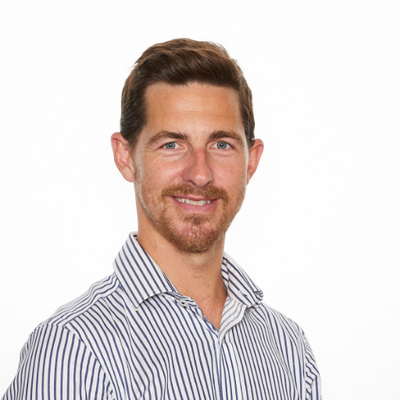
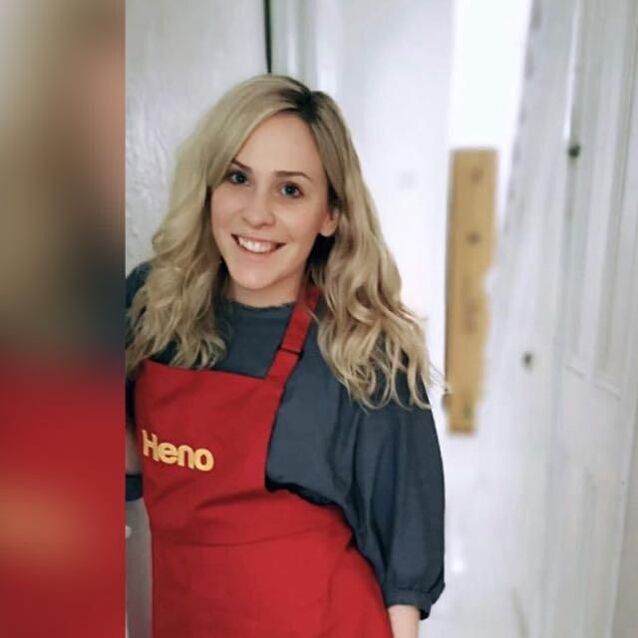
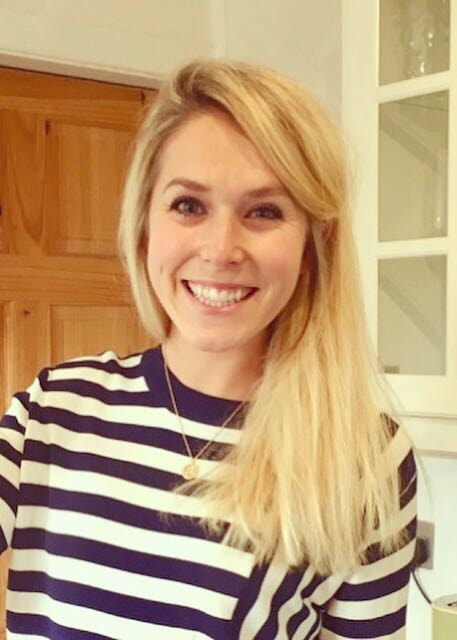
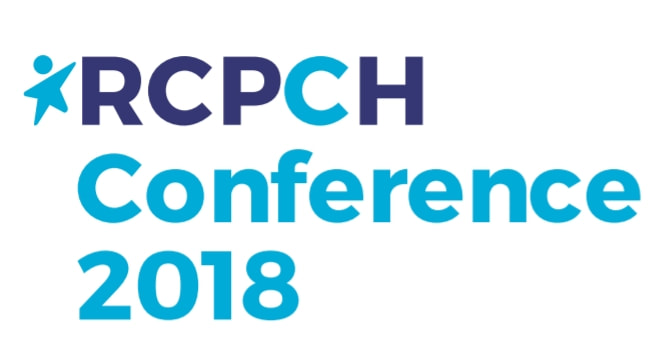
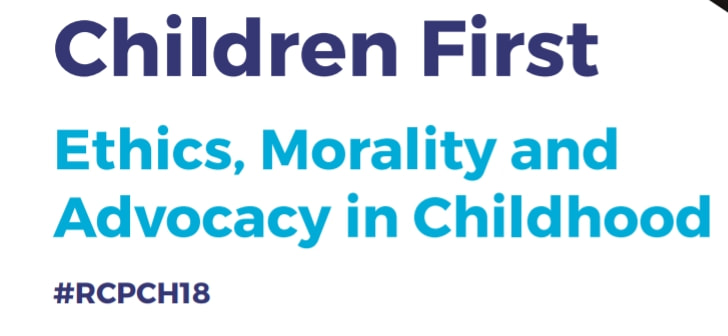

 RSS Feed
RSS Feed
